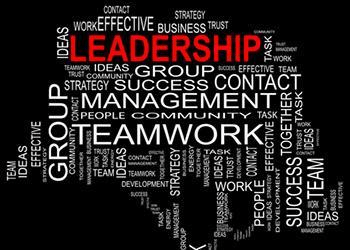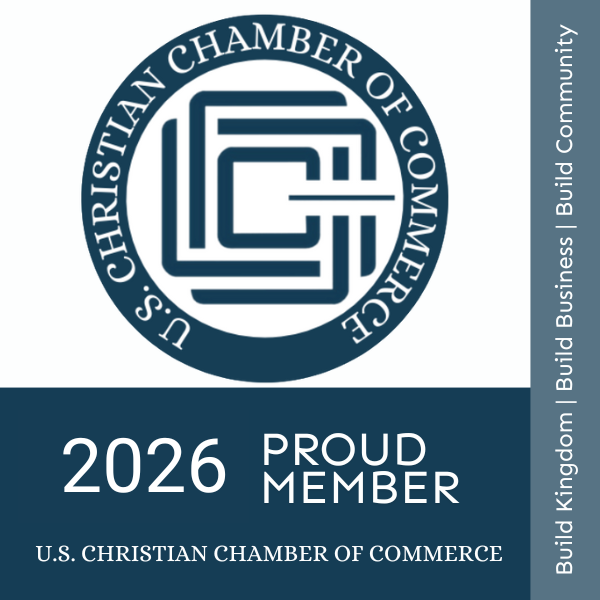Strategy for Nonprofits
Cara Barrett

As leaders of non-profit agencies you may often ask yourself if it is really necessary for your organization to spend valuable resources to develop a strategic plan? It certainly is! Keep reading to find out why your nonprofit should revise (or develop) – and use – a written strategic plan.*
- Competitive advantage in grant seeking. Donors are interested in how their support will be used to advance the organization’s mission and its future plans. A clearly articulated strategic plan gives your non-profit agency the edge over other organizations competing for grant funds.
- Ensuring continuity – A clear vision and mission statement encompassed in the agency’s written strategic plan helps to keep the organization on course. This document is the framework which sets the agency’s priorities and serves as a guide for succession planning.
- Guiding key decisions – Time pressed executives and board members are better able to evaluate opportunities and make decisions in the context of the fit with the long term strategy for the agency.
- Identifying potential problems – The development or revision of the agency’s strategic plan entails a critical assessment of the current situation, historical trends and forecasted changes. The process itself, therefore, provides the opportunity to identify issues previously unrecognized by the leadership and plan accordingly.
- Defining competitive strengths & evaluating opportunities for collaboration- The strategic plan identifies the agency’s niche(s) and competitive strengths, as well as potential cost saving opportunities through cooperation, such as merging back office operations. Potential partnerships may be identified and evaluated.
In addition to securing the future of your organization, the strategic planning process offers the shorter term benefit of developing mission-centered action plans designed to ensure efficient use of resources.
*Source: The Importance Of Strategy For Nonprofits (by Rosemary Bayer and Lee Gorman)

Every great nonprofit begins with a powerful “why.” Your mission is more than a statement on your website or a line in your brochure—it’s the heartbeat of your organization. It defines who you are, why you exist, and what change you’re striving to create in the world. A clearly defined and well-communicated mission has the power to unite stakeholders, inspire donors, guide decision-making, and ensure long-term impact. So, how do you go beyond words on paper and bring your mission to life? It starts with clarity, alignment, and storytelling. 1. Articulate Your Purpose with Clarity and Passion Your mission should be direct, memorable, and deeply rooted in your values. It should answer three essential questions: - What problem are you solving? - Who are you serving? - What change are you working to achieve? Example: Let’s look at Feeding Hope, a local food insecurity nonprofit. Their original mission statement read: “We aim to reduce hunger.” While noble, it was vague and lacked specificity. After a mission review, they refined it to: “Feeding Hope fights food insecurity by providing nutritious meals and sustainable support to underserved families in the Tri-County region.” This new statement tells you what they do, how, for whom, and where. It positions them as a solution-oriented organization with a clear geographic and demographic focus. 2. Ensure Alignment Across All Stakeholders A mission can only lead effectively if everyone follows it. From your board and staff to volunteers and donors, all stakeholders should not only know your mission—but believe in it, speak it, and use it to guide their roles. Board Members: Your board should use the mission as a touchstone for governance decisions. Are new initiatives aligned? Are partnerships helping further the mission or creating distractions? Staff and Volunteers: Train your team to see how their work contributes to the mission. Even administrative staff or volunteers working one event a year should understand how their role helps move the mission forward. Example: Youth Thrive, a mentoring organization for underserved teens, holds an annual “Mission Moments” breakfast for all new staff, board members, and volunteers. During the breakfast, alumni share personal stories of transformation. These testimonials put a human face on the mission and create an emotional connection that keeps stakeholders engaged beyond the event. 3. Document the Need for Your Services It’s not enough to say your work matters—you need to prove it. Documenting the need with both data and stories helps demonstrate why your mission is critical and relevant. Use Local and National Data: Show trends, gaps, and disparities. If you're tackling homelessness, present the latest statistics in your service area and connect those numbers to the people you serve. Tell Impactful Stories: Pair data with compelling stories that showcase real lives changed by your work. A powerful narrative helps donors see their dollars in action and helps policymakers understand your value. Example: Bright Futures Literacy Foundation wanted to highlight the importance of early reading intervention. They published a community impact report showing that 68% of local third graders weren’t reading at grade level. Alongside this data, they featured the story of Jaden, a second grader who struggled to read until joining their afterschool program. Now reading above grade level, Jaden’s transformation became the face of their fundraising campaign—raising 40% more than the previous year. Final Thoughts: Mission as a Living Strategy Your mission is not a static statement—it’s a living strategy. It should be reviewed regularly and woven into everything from fundraising appeals to annual reports, staff meetings, social media posts, and public presentations. When everyone in your organization can clearly articulate the mission—and more importantly, see how their role fulfills it—you become more than just a nonprofit. You become a movement. In a world with many causes vying for attention and resources, a clearly defined and powerfully communicated mission is your greatest tool for cutting through the noise, building trust, and driving real change.

We've all been there: staring at a blank screen, trying to craft a compelling proposal that will capture a funder's attention. We meticulously lay out the facts, the figures, the impact, but sometimes, it feels like something is missing. What is it? Emotion. It's easy to get caught up in the technical details, the data, and the logical arguments when writing a proposal. And while those are undoubtedly important, they often don't tell the whole story. To truly make your proposal stand out, you need to bring the emotion, the heart of the proposal, to the forefront. Think about it from the funder's perspective. They review countless proposals, each detailing worthy causes and impactful projects. What will make yours memorable? It's the ability to connect with your client on a deeper, human level through your words. You want them to feel the passion, understand the urgency, and envision the positive change your project will bring. So, how do you infuse that crucial element of emotion into your proposals? Tell a Story: Instead of just presenting statistics, share a brief, impactful anecdote about someone your client has helped or will help. Let the funder see the faces and hear the voices of those who will benefit. Use Vivid Language: Don't be afraid to use descriptive words that evoke feelings. Instead of saying "the program provides support," try "the program offers a lifeline of hope and stability." Focus on the "Why": While the "what" and "how" are essential, spend time articulating the "why." Why is this project so vital? What problem does it solve for real people? What transformation will occur? Show, Don't Just Tell: Instead of simply stating your client's impact, illustrate it. Describe the tangible changes, the newfound opportunities, and the improved lives. Be Authentic: Your passion for your client's mission should shine through. When you genuinely care, it resonates with the reader. Remember, a strong proposal isn't just a collection of facts; it's a narrative that inspires, connects, and ultimately, moves funders to action. By focusing on the emotional core of your work, you'll create proposals that not only stand out but truly make a difference. Here at P2G, we understand the power of emotion in grant writing. We don't just craft technically sound proposals; we work closely with our clients to unearth the impactful stories and genuine human experiences that truly differentiate their mission. Our goal is to help you translate your passion into compelling narratives that resonate deeply with funders, fostering a connection that goes beyond the numbers.

It's a common trap in the world of fundraising: you successfully secure a grant from one foundation, and suddenly you feel like you've cracked the code. You assume that what worked for Fund A will surely work for Fund B, especially if they appear to be similar – perhaps both are community foundations, or both are family foundations. Stop right there. This mindset is precisely why so many grant applications miss the mark. The most crucial rule you can ingrain in your fundraising philosophy is this: If you know one funder, you know ONE funder. Let that sink in. While organizations might share a broad category, like "community foundation" or "family foundation," their individual priorities, processes, and even personalities can differ dramatically. The following provides specific examples of how funders can differ: Community Foundations: These are often geographically focused and aim to improve the quality of life in a specific area. However, one community foundation might prioritize education and workforce development, while another in a neighboring county focuses heavily on environmental sustainability and arts and culture. Their application processes, reporting requirements, and even their preferred communication methods can vary wildly. Family Foundations: These are established by individuals or families and reflect their unique philanthropic interests. One family might be passionate about medical research, another about alleviating homelessness, and yet another about preserving historical landmarks. Their grantmaking can be highly personal and may not always follow traditional grant cycles. Some may even operate with minimal public transparency. It is Imperative to Read the Directions Carefully This leads directly to the second, equally vital piece of advice: Read the directions carefully. This isn't just about ensuring you submit all the required documents. It's about understanding the funder's specific asks, their preferred format, their deadlines, and their unstated nuances. Do they want a brief letter of inquiry or a full proposal? Are there specific attachments required, like a logic model or a list of your board of directors? Is there a character limit for certain sections? Do they have specific impact metrics they want you to address? Missing these details not only makes your application look unprofessional but also signals to the funder that you haven't taken the time to understand their unique needs and preferences. What This Means for Your Fundraising Strategy: Do Your Homework: Before you even think about writing, deeply research each potential funder. Explore their website, look at their past grants, and see if they publish annual reports or other strategic documents. Tailor, Don't Template: Every application should be uniquely tailored to the specific funder. Generic proposals rarely succeed. Highlight how your mission and project align precisely with their stated priorities. Pay Attention to Detail: The "small things" often make the biggest difference. Adhering to every instruction demonstrates respect for the funder's time and process. In the competitive world of grant seeking, success hinges on precision and personalization. Never assume. Always investigate. And always, always, always read the directions carefully. Your next grant award might just depend on it. At P2G, we live by this golden rule. We understand that effective fundraising isn't about mass outreach; it's about strategic, informed engagement. Here's how we put this philosophy into practice: In-Depth Funder Research Customized Grant Strategy Personalized Proposal Development Rigorous Adherence to Guidelines By focusing on precision and personalization, P2G helps you move beyond the "one funder" trap and build a strong and strategic grantsmanship plan.

It's a common pitfall in the world of grants and proposals: we get so caught up in what we want to do that we forget to consider how we're saying it. But here's a secret that can dramatically increase your success rate: using funder language shows that you are aligning with their mission. Think about it from a funder's perspective. They have specific goals, values, and areas of focus. They've likely invested significant time and resources into crafting their mission statement, strategic priorities, and even the language they use to describe the problems they want to solve and the solutions they envision. When you mirror that language in your proposals and communications, you're doing more than just being polite. You're demonstrating a deep understanding of their vision. You're signifying that your work isn't just good, but that it's exactly what they're looking for.

One of the most controversial “asks” in the nonprofit sector, alongside general operating expenses, is the request for capacity building funds. It can be challenging to find a funder who will financially support capacity building. Unlike a programming request, an organization cannot point to a specific event and report, “The company served an additional 500 people by upgrading its customer relationship management system.” It is more challenging to quantify the impact of purchasing upgraded technology—but it is not impossible. A nonprofit’s superpower is what it already has: the organization’s mission and vision. Capacity-building funding is central to American philanthropy and to a civil society. In order to thrive, nonprofit organizations need to be free to develop their skills and abilities—to get even better at what they do best. The National Council of Nonprofits defines capacity building as “whatever is needed to bring a nonprofit to the next level of operational, programmatic, financial, or organizational maturity.” It is the type of funding that allows a nonprofit to advance its mission and act on its vision. Capacity building funding is central to American philanthropy and to a civil society. In order to thrive, nonprofit organizations need to be free to develop their skills and abilities—to get even better at what they do best. This is why capacity building is vital. A nonprofit can enhance its capacity building requests in three ways: by focusing the lens on the organization’s mission; by expanding the lens to look at the organization’s vision; and by changing the lens to consider succession planning. All these elements can open funding streams that allow an organization to get even better at what it does best. Mission Impossible - Without Full Capacity When considering applying for capacity building grants, focus on the organization’s mission. This can be an effective way to frame a nonprofit’s funding request. Suppose an organization provides adult daycare services for seniors in its community. In that case, the organization’s mission might be to provide quality programming that supports the social and mental wellness of area seniors for improved health outcomes. Perhaps the team is noticing that the demand for its nonprofit’s services is exceeding the staff’s availability. The nonprofit may need to purchase a volunteer management system or recruit and train more volunteers. Collaborate with the team to articulate the request that will help take the nonprofit to the next level of programmatic maturity. To craft a persuasive capacity building request focused on the company’s mission, consider the following: Mission - What is the organization’s mission statement? Need - What does nonprofit need that it currently does not have in order to fulfill its mission? Data that supports this need - How does the team know the business needs this? Request - What is the nonprofit requesting? How much is the cost of each budget item? Include a budget breakdown for the funder. Return on investment - How will these capacity building funds help the nonprofit fulfill its mission? How does the team know? In terms of data, consider what would have the most impact on the potential funder. For example, if the organization is applying to a financial organization, the applicant might refer to the bottom line—the cost of doing business. In April 2024, the Independent Sector, in cooperation with the Do Good Institute at the University of Maryland, reported that the estimated value of one volunteer hour in 2023 was $33.49, a 5.3% increase over 2022 (independentsector.org). How does that $33.49 contribute to the organization’s ability to fulfill its mission? Capacity building starts and ends with a nonprofit’s mission. The mission is what the organization does best. Make it clear why funding this capacity building request will help the organization do its best for the target population. Show, don’t tell, a potential funder how it is impossible for the business to fulfill its mission without being at full capacity in a given area of the organization, such as volunteer management. Vision Screening - Seeing up close and far away Mission is seeing up close. It is what the nonprofit team does on a day-to-day basis. Vision is far-sighted; it is stepping back and looking at what the organization wants to accomplish over a period of years. Suppose a company is a nonprofit that provides after-school mentoring for at-risk youth. The organization is receiving feedback that the needs of the students the team serves—and the needs of the mentors who serve them—are changing. Students need access to technology, and mentors need training on new tools and resources to best meet those demands. The company has been getting by with what is available, but it is time to step back and look at the bigger picture, to evaluate what could be possible for the organization and the people the team serves. It is time to review—or create—the organization’s strategic plan to identify and order the company’s needs. The strategic plan is a nonprofit’s roadmap to success. It helps a company prioritize its needs by outlining its goals and identifying how the team plans to meet that vision. A strategic plan outlines an organization’s identified needs over time. But how does a nonprofit balance the needs outlined in a strategic plan alongside the needs that arise from day-to-day interactions with the people the organization serves? When using a strategic plan to identify a vision-aligned capacity building funding request, consider the following: Vision - What is the nonprofit’s vision statement? Need - What are the organization’s immediate needs? How do these needs align with the nonprofit’s identified needs over the next 2-5 years? Data that supports this need - How does the team know these are the organization’s short-term and long-term needs? What are the data points? What is the nonprofit currently [not] able to do? Where are the gaps? How does the team know? Request - What does the nonprofit need to guide the organizational development? Can the organization do this work internally, or does the leadership team need to hire a consultant? Return on Investment - How will these capacity building funds help the nonprofit fulfill its vision? How does the team know? In terms of data points, how does the organization evaluate current services? Does the team use qualitative tools (narrative feedback), quantitative tools (surveys with closed-ended questions), or mixed methods (a combination of the two)? In terms of the request, what does the company want and need this request to include? If the organization has a lot of competing needs, it can be helpful to hire a consultant to guide the team through the prioritizing process. Include that cost in the capacity building request. Capacity building allows an organization to grow and meet the next level of operational maturity. Having—and using--a strategic plan is essential to a thriving and responsive nonprofit. Succession Planning - What you don't know can hurt you According to BoardSource’s latest Leading with Intent Report (2021), only 29% of nonprofits surveyed reported having a written succession plan in place (councilofnonprofits.org). While succession planning involves deliberate consideration of who will take over in the event of a retirement or other transition at the leadership level, succession planning is not an event (naming a successor); it is a process. If a nonprofit does not already have a succession plan in place or needs to update its plan, consider requesting capacity building funds to financially support this process. The National Council of Nonprofits (councilofnonprofits.org) identifies ten planning tips for leadership transition, from engaging the board and the staff in meaningful conversation about managing intentional transitions in leadership to dedicating time and money to deliberate on-boarding. This planning incurs costs, and securing capacity building funds can make this process easier. Leadership - What are the organization’s current leadership roles? Need - Why does the nonprofit want to develop a succession plan? What would be the impact on the organization and its programming if the nonprofit does not have a succession plan? How would such chaos impact the company’s mission and vision? Data that supports this need - What is the organizational structure? How does the team decide who serves in each capacity? How many Board members does the organization have? Staff members? Volunteers? How many people does the nonprofit serve? How many team members serve in multiple roles? Request - How would the organization use capacity building funds? Break down the component costs, from creating an Emergency Leadership Transition Plan to developing new leaders to onboarding leaders. Return on Investment - How will these capacity building funds allow the nonprofit to fulfill its mission and vision? How will it save the company time and money in the long run? Capacity building funds are necessary for securing the long-term health and survival of an organization. Data tells us that 71% of nonprofits are ill-prepared for a change in leadership, whether that change is planned or unexpected. Investing in purposeful succession planning using capacity building funds can help safeguard an organization, allowing the team to take the nonprofit to the next level of financial and organizational maturity. Be intentional The key to requesting capacity building funds is to be intentional. Know who the nonprofit is, who the nonprofit serves, and how the nonprofit serves (mission). Know where the organization is today and where it wants to be in 5-10 years (vision). Know who the leaders are today—and in five years (succession planning). All of these are part of capacity building. A contender is hard-pressed to complete a grant application or draft an LOI without addressing sustainability—how a team plans to stay afloat as an organization. Capacity building makes sustainability possible. By staying focused on the nonprofit’s mission and vision, an organization can craft a capacity building request that allows the team to get even better at what it does best. Now that’s a superpower!

Every child has a hero, someone who inspired vision in them, someone they aspired to be like. For me, as a little girl, I had two heroes- Benjamin Franklin and Dr. Seuss. Although from different times and disciplines, they both taught me invaluable lessons I still use today. Despite their different fields of expertise - Franklin in politics, science, and invention, and Dr. Seuss in children's literature - they both left a lasting legacy that continues to shape and inspire generations. Both were unique influential philosophers who found purpose and fulfillment through connections to others. From the wisdom of “Poor Richards Almanac” to the lyrical ingenuity of “Oh The Places You Will Go,” both Franklin and Seuss were storytellers with a voice for change. Their words made me think and encouraged me to dream. At eight years old, I knew I also wanted to write and tell stories that would encourage people and change the world. It's fascinating how childhood aspirations can pave the way for unexpected yet fulfilling careers. Little did I know that this passion would one day lead me to a successful career in grant writing. Inspired by the works of two literary giants, I found myself drawn to a path of advocacy and change. So, after a successful 25-year career in non-profit Executive leadership, I was given the opportunity to join the Pathways to Growth Team as a grant writer. Pathways has been a leader in the non-profit consulting arena for many years so to be able to work with the best of the best has been a privilege! To me, grant writing is a harmonious blend of science and art, where data-driven methodology meets creative expression to produce persuasive and impactful proposals. Sounds impressive, right? So, what did I learn about grant writing from these two? For that, I will start with good ole Ben.

Securing a grant represents a monumental achievement for any entity or individual striving to confront societal challenges or propel constructive transformations forward. It signifies a crucial step toward making a tangible impact and fostering positive change within communities. While obtaining a grant marks a substantial milestone, the true impact transcends mere acquisition; it hinges on the adept execution of the proposed program or project. Effectively implementing the envisioned initiatives is where the transformative potential of the grant truly manifests. Maximizing the impact of a grant necessitates a meticulous approach, characterized by thorough planning, strategic execution, and continuous evaluation. This comprehensive process ensures that resources are allocated judiciously and utilized optimally, ultimately leading to the attainment of desired outcomes. Below are eight fundamental strategies essential for the effective implementation of programs, designed to unlock the full potential and maximize the impact of grants. These strategies serve as guiding principles, shaping the trajectory of grant-funded initiatives toward meaningful and sustainable outcomes.





